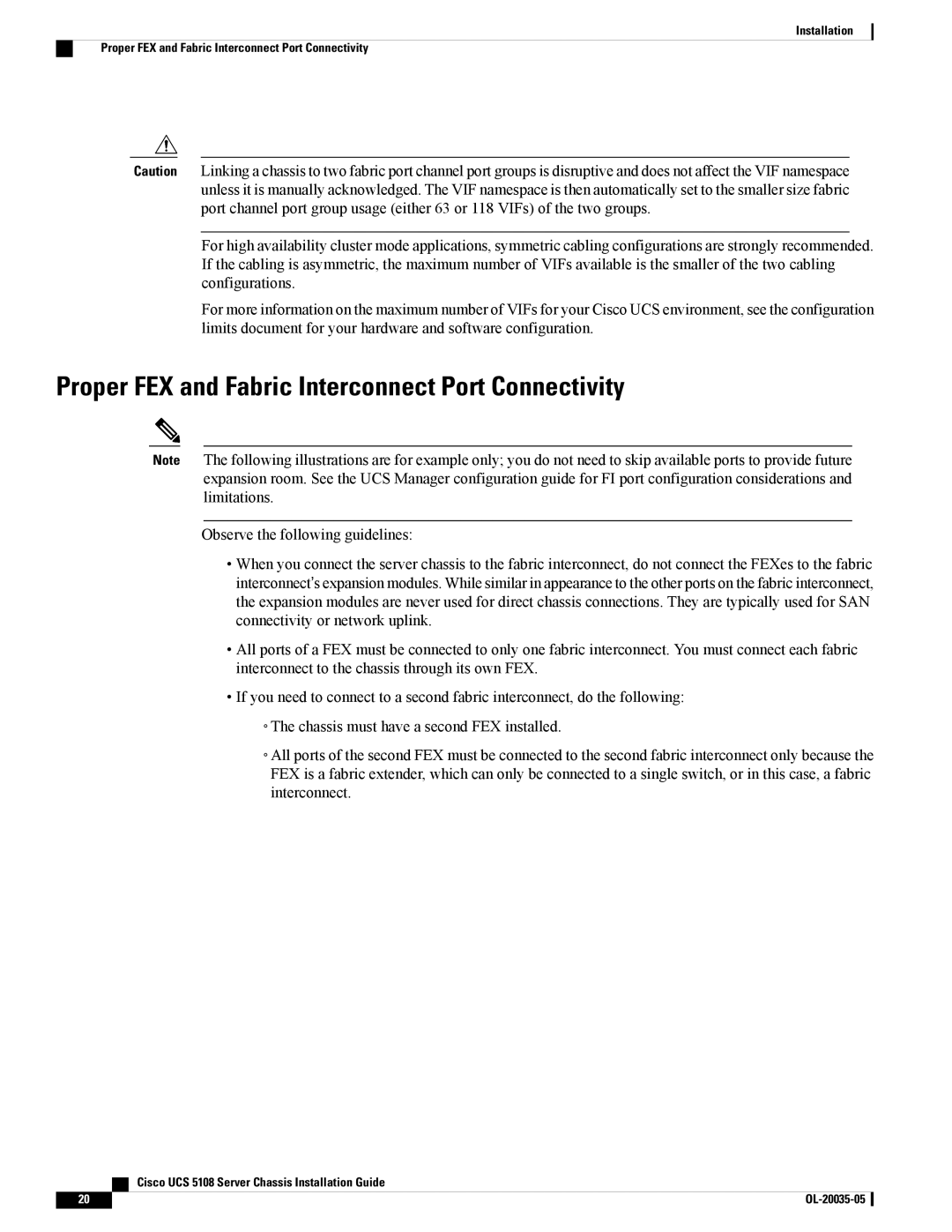
Installation
Proper FEX and Fabric Interconnect Port Connectivity
Caution Linking a chassis to two fabric port channel port groups is disruptive and does not affect the VIF namespace unless it is manually acknowledged. The VIF namespace is then automatically set to the smaller size fabric port channel port group usage (either 63 or 118 VIFs) of the two groups.
For high availability cluster mode applications, symmetric cabling configurations are strongly recommended. If the cabling is asymmetric, the maximum number of VIFs available is the smaller of the two cabling configurations.
For more information on the maximum number of VIFs for your Cisco UCS environment, see the configuration limits document for your hardware and software configuration.
Proper FEX and Fabric Interconnect Port Connectivity
Note The following illustrations are for example only; you do not need to skip available ports to provide future expansion room. See the UCS Manager configuration guide for FI port configuration considerations and limitations.
Observe the following guidelines:
•When you connect the server chassis to the fabric interconnect, do not connect the FEXes to the fabric interconnect’s expansion modules. While similar in appearance to the other ports on the fabric interconnect, the expansion modules are never used for direct chassis connections. They are typically used for SAN connectivity or network uplink.
•All ports of a FEX must be connected to only one fabric interconnect. You must connect each fabric interconnect to the chassis through its own FEX.
•If you need to connect to a second fabric interconnect, do the following:
◦The chassis must have a second FEX installed.
◦All ports of the second FEX must be connected to the second fabric interconnect only because the FEX is a fabric extender, which can only be connected to a single switch, or in this case, a fabric interconnect.
| Cisco UCS 5108 Server Chassis Installation Guide |
20 |
